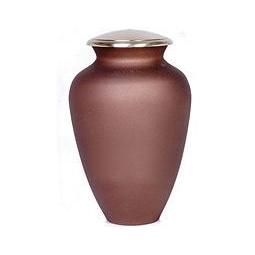Catholic Cremation?
In the JP2 Group last week the question of cremation came up so I thought I’d write a quick post about it here.
Body Bad, Spirit Good?
Prior to the birth of Christianity, cremation was common. This stemmed in large part from the way Pagans viewed the body and soul. They did not believe in the resurrection of the body. In fact, they had a pretty dim view of the body and cremation was sometimes seen as a way of releasing the soul trapped inside the body.
The Gnostic groups which competed with Christianity in the early centuries held to a similar dualistic beliefs. They viewed the spirit as something good, but the body as something evil.
Image and Likeness
Christianity, on the other hand, stood in stark contrast to this worldview, affirming the goodness of the body:
Then God said, “Let us make mankind in our image, in our likeness, so that they may rule over…all the creatures…” So God created mankind in his own image, in the image of God he created them; male and female he created them. – Genesis 1:26-27
St. Paul also spoke about the body in exalted terms, describing it as a temple:
Do you not know that your bodies are temples of the Holy Spirit, who is in you, whom you have received from God? You are not your own; you were bought at a price. Therefore honor God with your bodies.
– 1 Corinthians 6:19-20
Because of this, Christians afforded great respect to the body, both life and in death. We find this in the witness of the Early Church (AD 155) after the death of Polycarp:
[T]he centurion…declared [Polycarp’s] body property of the state and, according to their custom, burnt it. Afterwards, we collected Polycarp’s bones, being more precious than the most exquisite jewels and more purified than gold, we interred them in a fitting place. There the Lord will permit us…to assemble in rapturous joy and celebrate his martyrdom – his birthday – both in order to commemorate the heroes that have gone before, and to train the heroes yet to come… – Martyrdom of Polycarp, Chapter 18
The most important issue here though is that Christians proclaimed the resurrection from the dead:
So will it be with the resurrection of the dead. The body that is sown is perishable, it is raised imperishable; it is sown in dishonor, it is raised in glory; it is sown in weakness, it is raised in power…
– 1 Corinthians 15:42
Therefore, because of their belief in the sanctity of the body, as well as to affirm the resurrection of the body, Christians have historically not cremated their deceased. It is not that God would unable to resurrect a cremated body – He can do anything – it is that Christians simply wish to respect something made in God’s image and to affirm the resurrection from the dead. It is for these reasons that cremation has traditionally not been an option for Catholics.

Catholicism Today
In 1963 the Vatican lifted the restriction and allowed cremation. However, it is taught that the cremated remains must be treated with proper respect and that the remains should still be buried in a cemetery or some other appropriate burial place. They should not be kept on the mantelpiece or scattered outside.
Here is what the Catechism of the Catholic Church says concerning the subject:
The bodies of the dead must be treated with respect and charity, in faith and hope of the Resurrection. The burial of the dead is a corporal work of mercy; it honors the children of God, who are temples of the Holy Spirit.
Autopsies can be morally permitted for legal inquests or scientific research. The free gift of organs after death is legitimate and can be meritorious.
The Church permits cremation, provided that it does not demonstrate a denial of faith in the resurrection of the body – CCC #2300-2301
So although burial is still the preferred choice, it’s clear that cremation is a valid option for Catholics today, but only if the resurrection of the body is still affirmed. Why? Because Christ is risen from the dead…
Thank you discussing this here! I’ve been wondering about this and had not gotten a chance to look it up.
That’s what I’m here for 🙂
Pingback: An Argument About Cremation - Pints With Jack
Pingback: Cremation disagreement among The Inklings - Pints With Jack
Pingback: Cremation argument among The Inklings - Pints With Jack
Pingback: The Inklings Cremation Argument - Pints With Jack